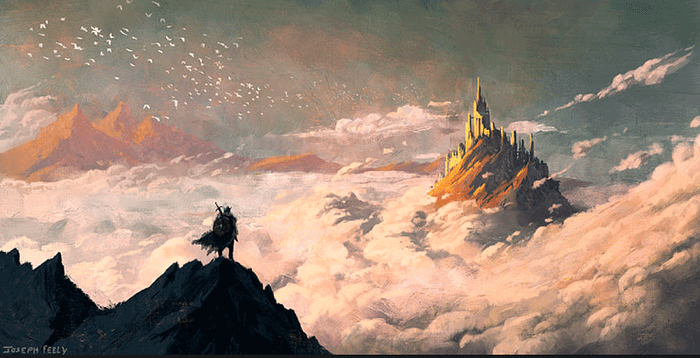The Journey of Transformation: Embracing the Hero Within
Written on
Chapter 1: Understanding the Societal Program
Society often attempts to install a certain mindset within us, akin to the way one would install software on a computer. The routine typically involves education, employment, marriage, parenthood, and ultimately, death. While this framework serves its purpose, it often overlooks individual psychological needs and the evolving nature of our lives, which can lead to feelings of dissatisfaction.
Historically, people had access to a richer array of "programs." They engaged with myths and stories that communicated deeper truths that could not be expressed plainly. Take the Bible, for instance. How many individuals read it today? And among those, how many truly grasp its teachings? Furthermore, how many implement its principles into their lives?
Instead of seeking genuine understanding, many opt for shortcuts. They might attend confession, feeling as though they've transformed, only to revert to their old habits shortly after. Carl Jung proposed that organized religion can sometimes act as a barrier to true spiritual experiences, simplifying them to mere concepts and ideas, which diminishes our capacity to feel real change.
Jung posed a significant question: "What myths do we adhere to in contemporary society?" Currently, many of our myths are outdated, leading to a lack of appreciation for their inherent wisdom. Contrary to popular belief, myths are not falsehoods; they serve as frameworks for psychological transformation. They encapsulate experiences in narrative form, conveying lessons about life, death, sacrifice, and rebirth.
Now, let’s delve into the concept of the hero's journey and the initiation process, as articulated by prominent figures like Robert Moore and Joseph Campbell.
Section 1.1: The Essence of a Hero
What defines a hero? A hero is someone who devotes their life to a purpose beyond themselves. The narrative remains consistent: it chronicles the hero's journey toward personal transformation and the impact they have on the world.
Initially, the hero experiences a sense of restlessness, feeling that something vital is missing from their existence. This sensation mirrors the moment in The Matrix when Morpheus tells Neo, "What you know, you can't explain, but you can feel it. You've felt it your entire life; there's something wrong with the world."
Section 1.2: The Call to Adventure
Soon, the "call to adventure" emerges, presenting the hero with a choice: accept the call or decline it, believing they are unprepared. This is the critical juncture where one decides to "follow the white rabbit."
Subsection 1.2.1: Embracing Change
When the hero ultimately accepts the call, they must bid farewell to their previous life. Sometimes, a jarring event is necessary to propel them forward and muster the courage to embark on this new mission.

Section 1.3: The Role of the Mentor
Every hero requires a mentor to navigate the unknown. This figure provides guidance and emotional strength, serving as a psychological anchor to help the hero remain committed to their path.
Chapter 2: The Transformation Process
The hero then plunges into the world of adventure, facing the abyss and embracing the unknown. At this point, there is no turning back.
In the abyss, the hero undergoes a significant transformation through a series of trials and challenges. True enlightenment is achieved only by confronting these difficulties head-on.
To complete their initiation, the hero must confront death: conquer the dragon, claim the treasure, and rescue the princess. While brute strength may have sufficed before, this moment demands emotional intelligence and wisdom.
Upon defeating the dragon, the hero returns to their origin, but they are no longer the same person. They transition from boyhood to manhood, choosing to dedicate themselves to causes greater than their own.
In today's culture, such initiation experiences are rare. In tribal societies, these transformations were evident. After an initiation, individuals emerged with altered perspectives and mentalities.
Myths speak to the needs of the soul. This essential "something" must originate from within, rather than being dictated by parents, educators, clergy, friends, or society at large.
The moment you not only comprehend this but also feel it, you face two choices: either "change the system" or exist within it as a conscious being. We possess the freedom to carve our own paths. There are those who wish to usurp our freedom, and many willingly relinquish it. Yet, the power to choose our own beliefs is what fundamentally defines our humanity.